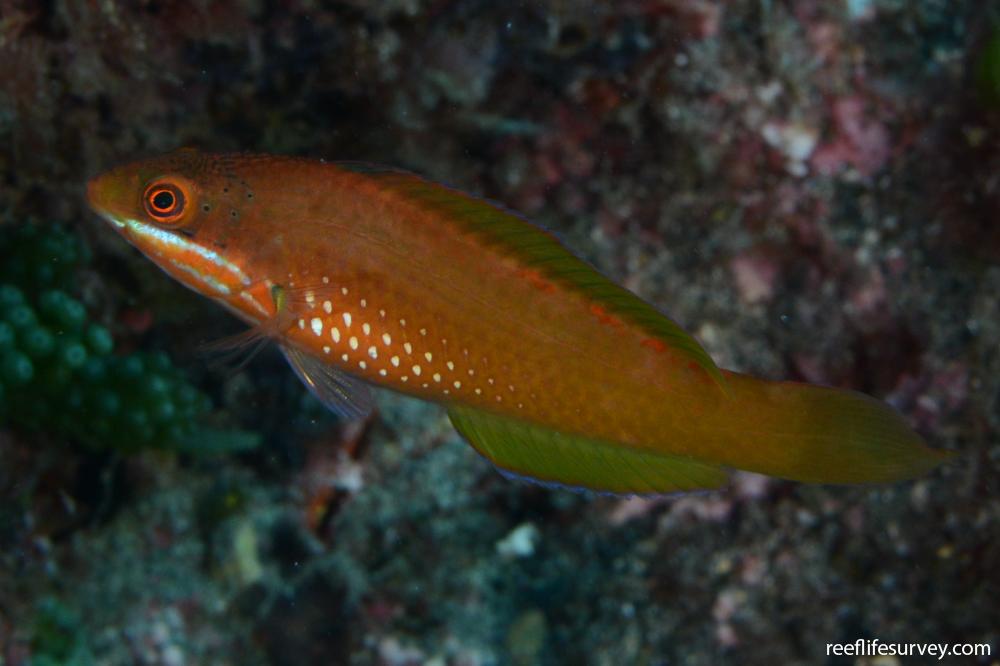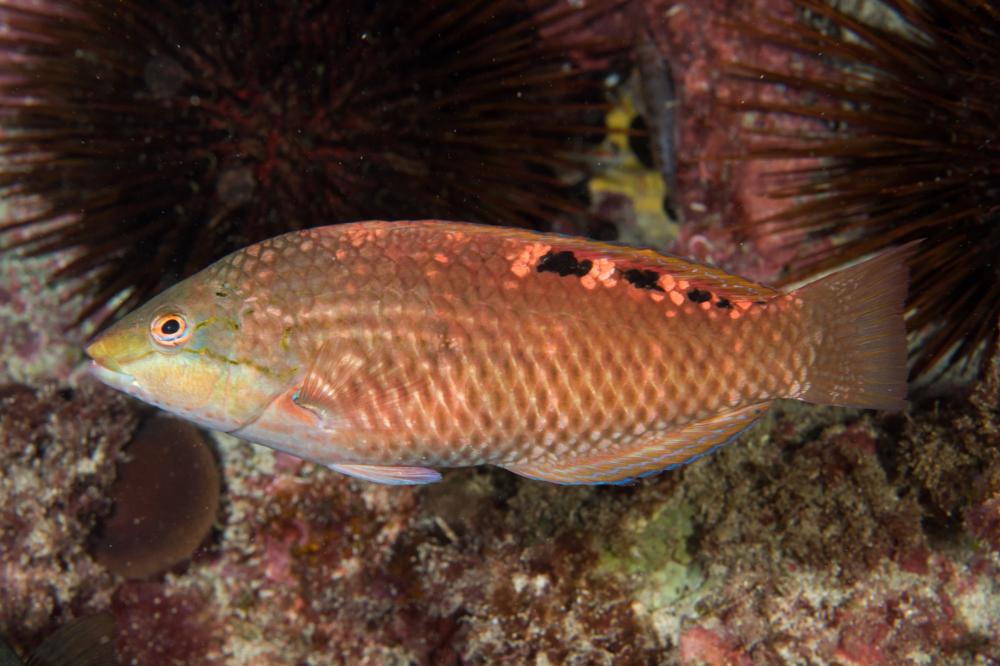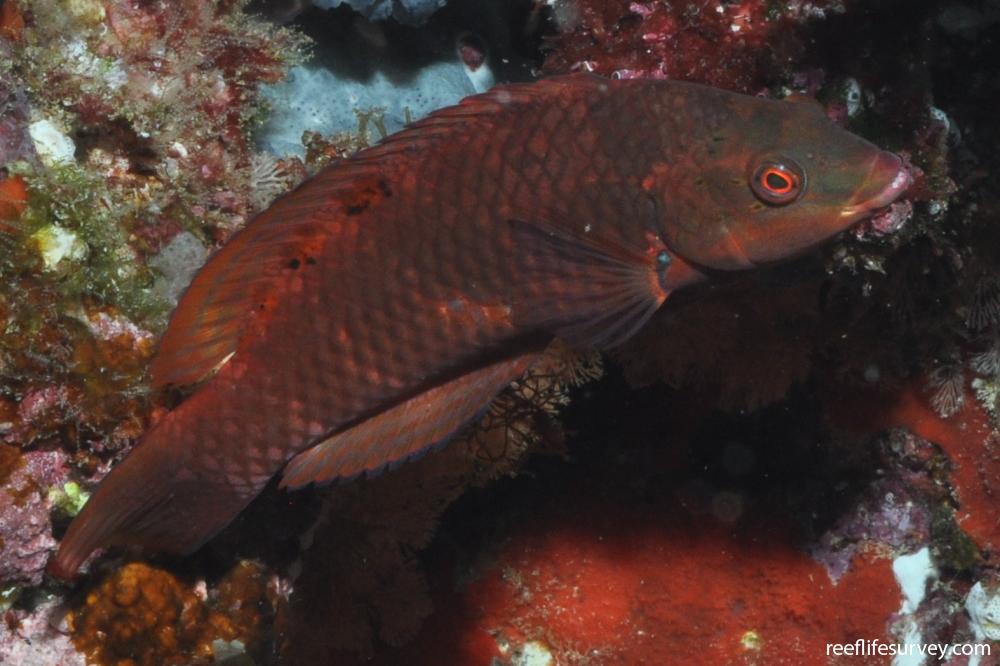Pseudolabrus luculentus
Luculentus wrasse | Luculent Wrasse | Orange WrasseSimilar Species
Same Genus
Distribution
Temperate Australasia, Tropical Indo-Pacific
Description
Male with red to brown body, and a series of black and white patches on back under rear of dorsal fin. Juveniles generally pink or green, thin white stripes on chin, oblique white streaks on scales on side, yellow anal fin and indistinct light and dark banding.
Information
Max Size: 17 cm
Sea Temperature Range: 15.3-25.3°C
Depth: 10-50m
Habitat Generalization Index: 27.38
Also referred to as the SGI (Species Generalisation Index), this describes the habitat niche breadth of the species. Species with values less than 15 are found in a relatively narrow range of reef habitat types (specialists), while those over 25 may be found on most hard substrates within their range (generalists). Learn more here.
Conservation and Rarity
IUCN Status: Least Concern
Occurrence: Common (44.2% of sites)
Occurrence describes how often the species is found on surveys within its distribution. It is calculated as the % of reef sites surveyed by RLS divers across all the ecoregions in which the species has been observed
Abundance: Many (23 per transect)
Abundance is calculated as the average number of individuals recorded per RLS transect, where present.
Edit by: GJ Edgar. 2008. Australian Marine Life. New Holland, Sydney


























